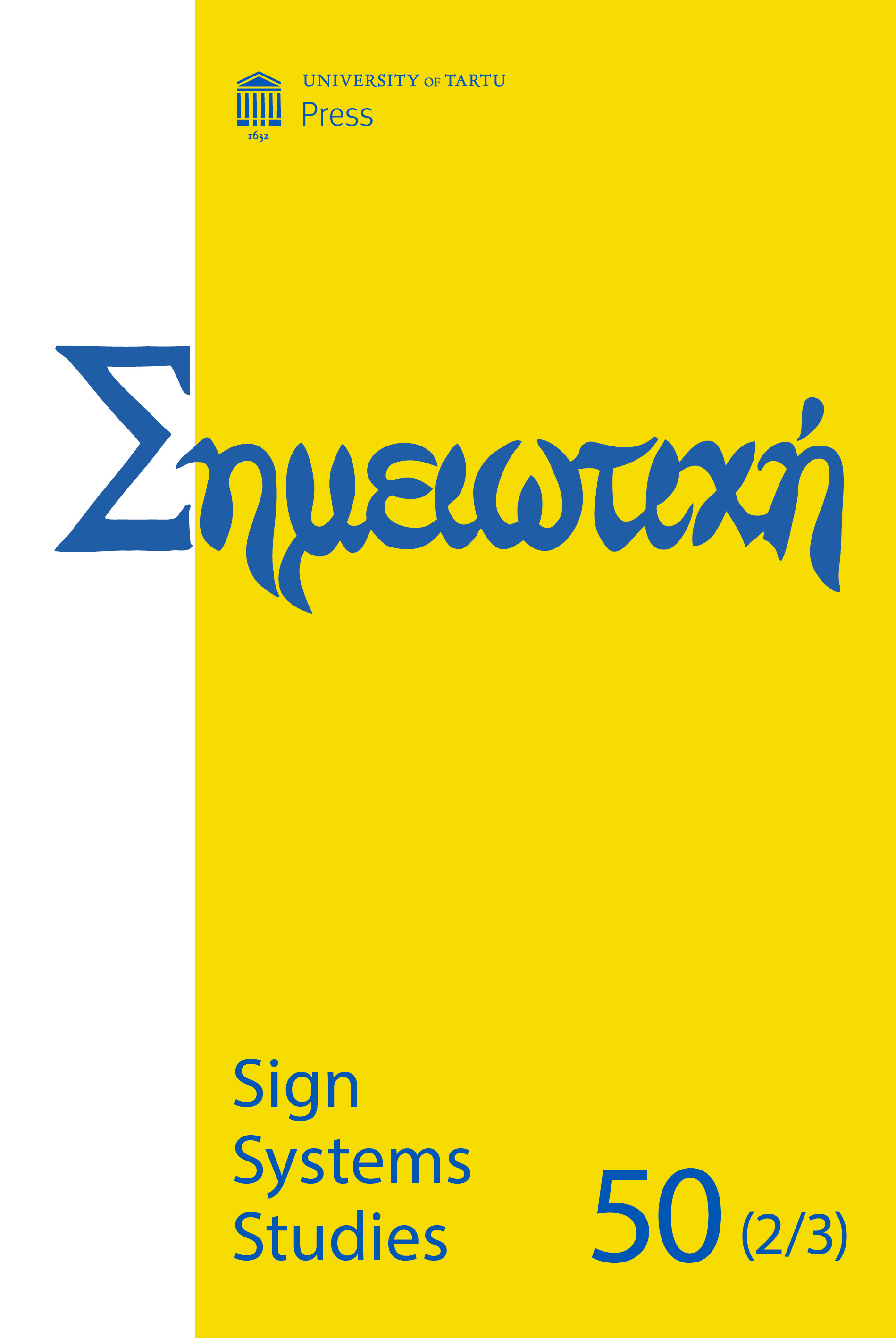Liberation of the signified from a rigid connection with the signifier as one of the conditions of the arbitrary nature of the sign
DOI:
https://doi.org/10.12697/SSS.2022.50.2-3.02Keywords:
arbitrariness, conditioned reflex, present tense, information, code, sign, signal, signifier, languageAbstract
How do arbitrary signs occur? The article suggests that the basis of arbitrariness is the liberation of the signified from a rigid connection with the signifier. An important role is played by the psychological present. The psychological present is not one-dimensional but is represented by dimensions of sequence, simultaneity, and duration. Non-arbitrary signs are as if one-dimensional: the signifier and the signified are in undifferentiated unity – in one dimension of the present time. When forming arbitrary signs, the signified and the signifier are separated from each other and are embodied in different dimensions – the levels of the psychological present tense, invariant and variable. At the same time, the signified occupies an invariant level, and the signifier is variable so that the signified remains constant with any change in the signifier. Therefore, different signifiers can be applied to the same object at will, and the content of the designated object does not change. The signified thus becomes relatively independent and free from the signifier.


